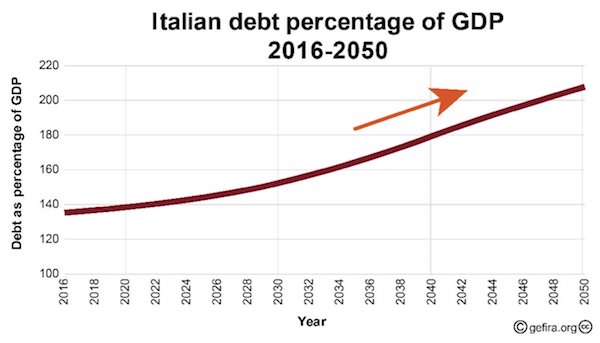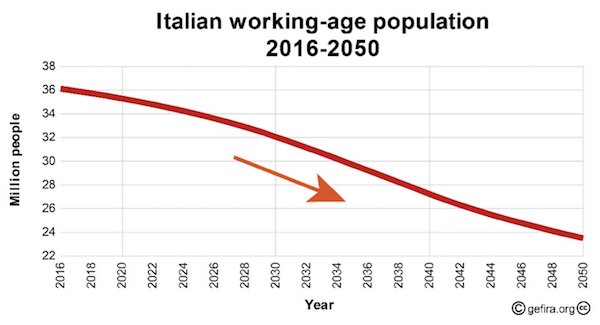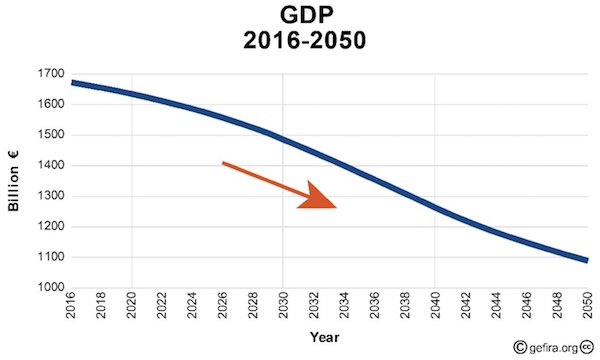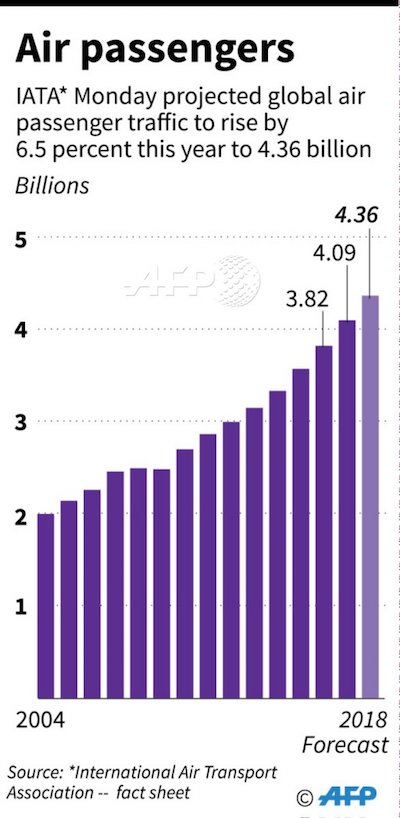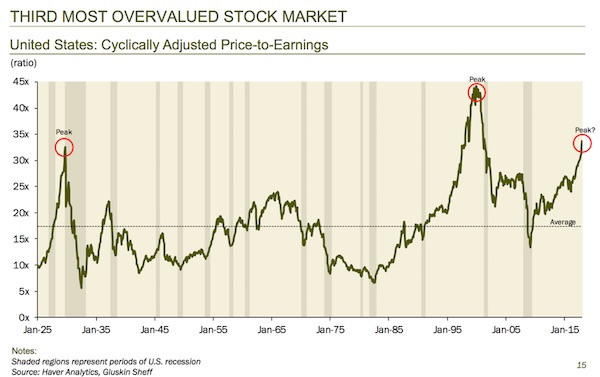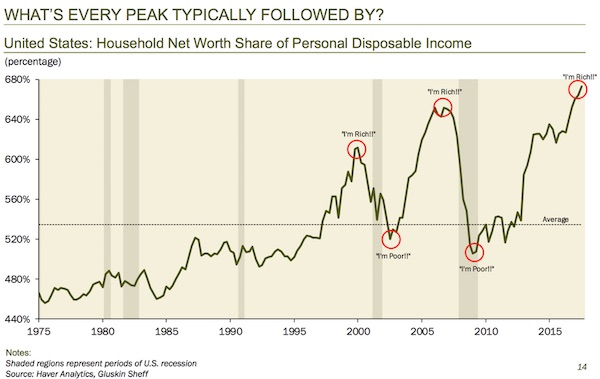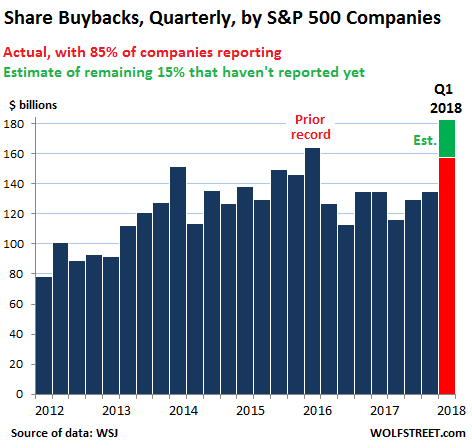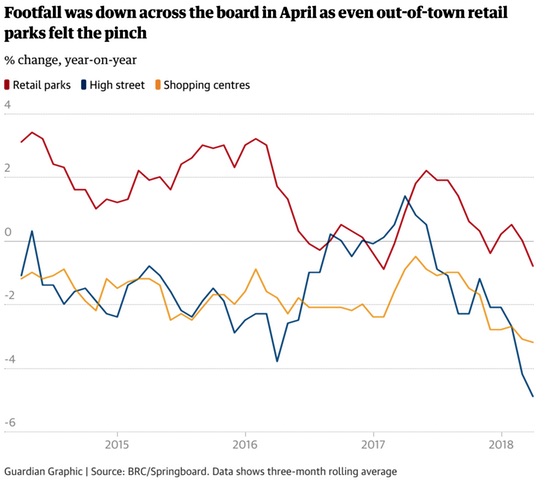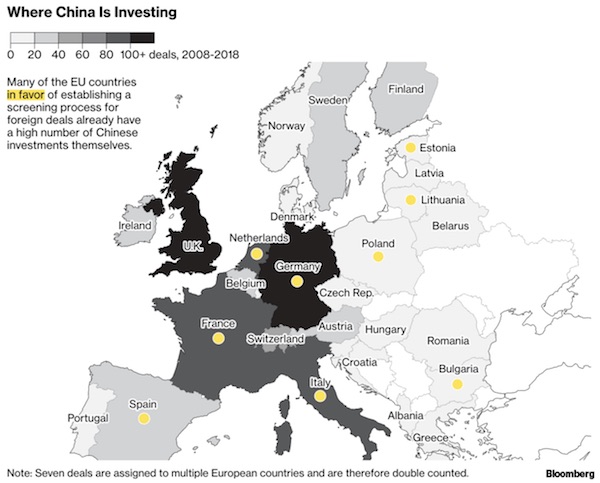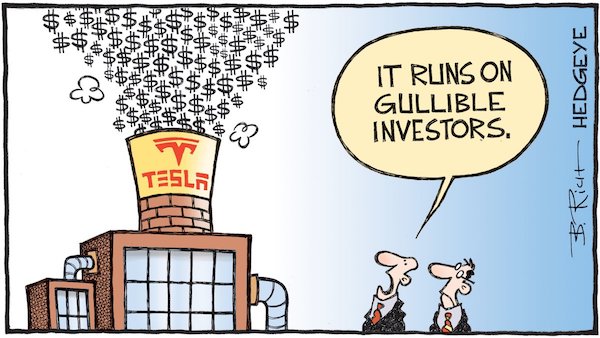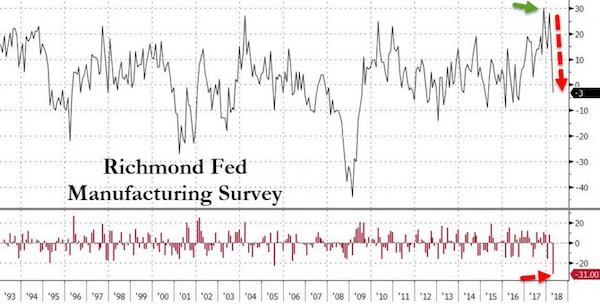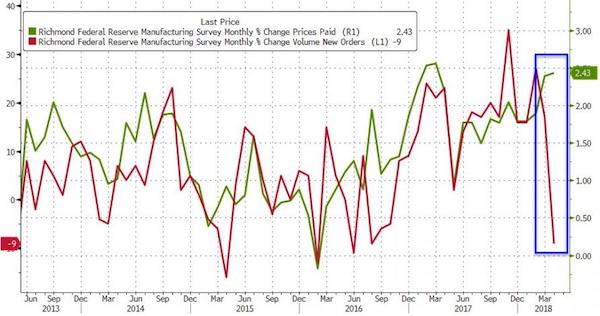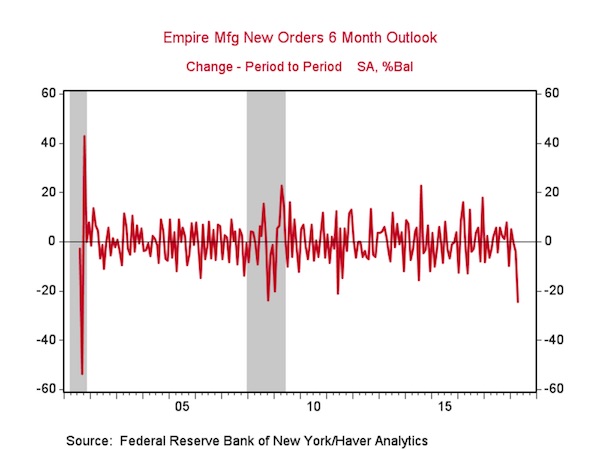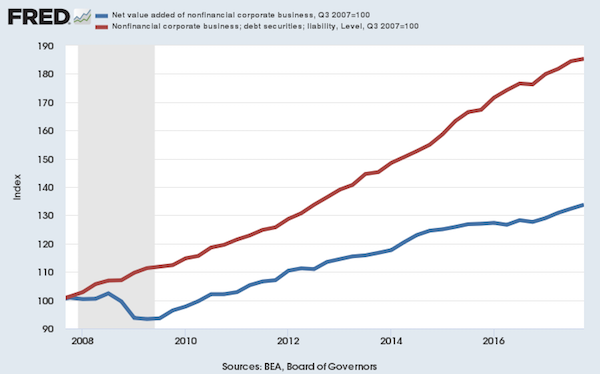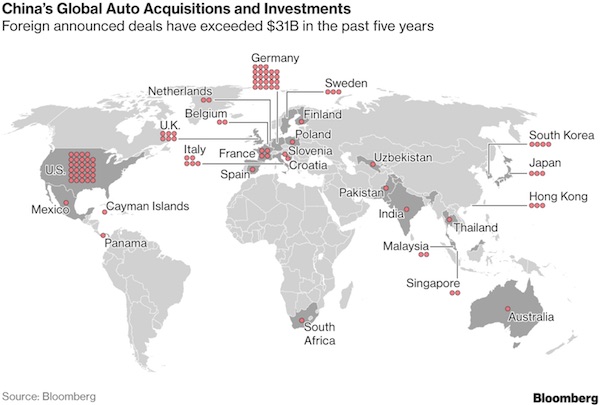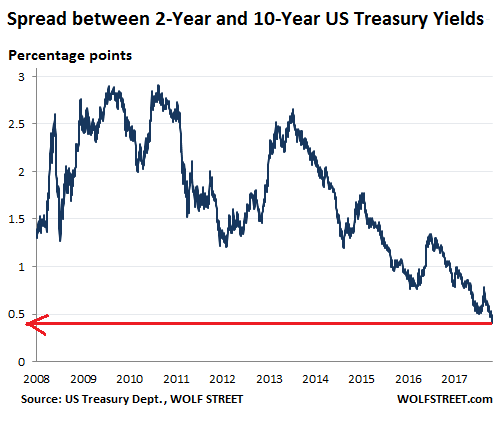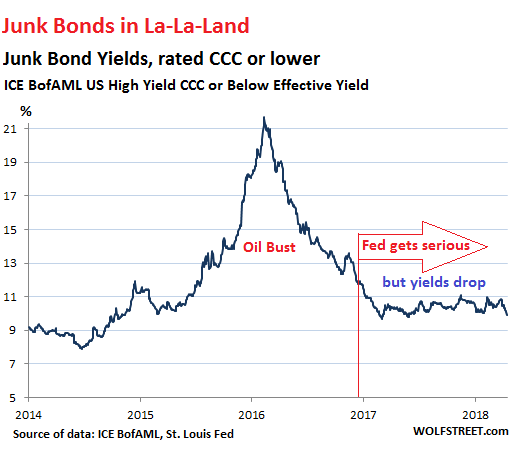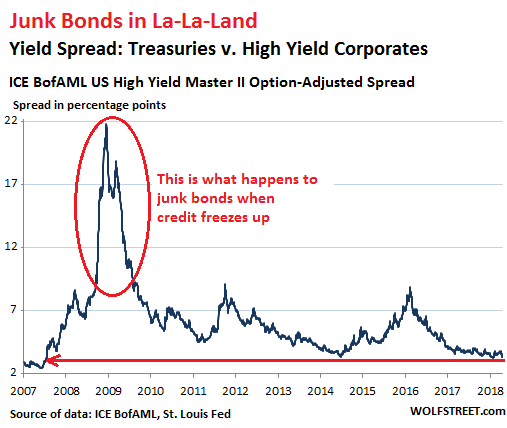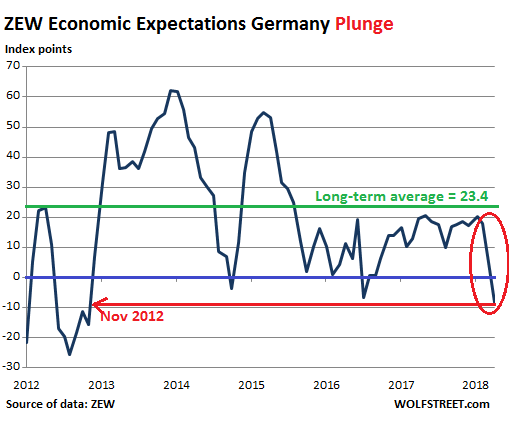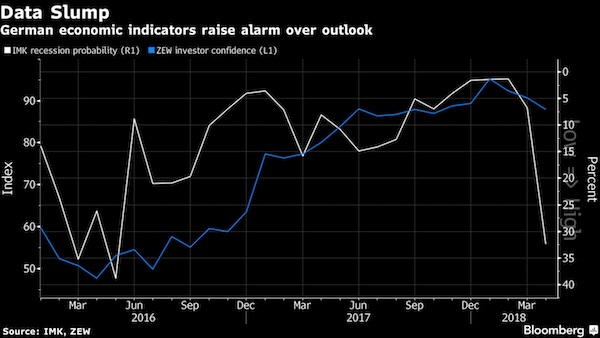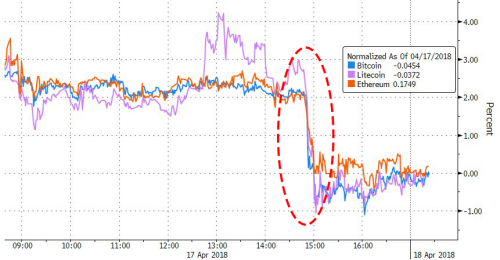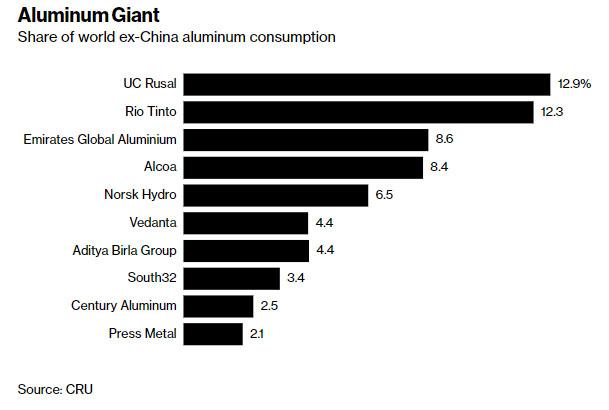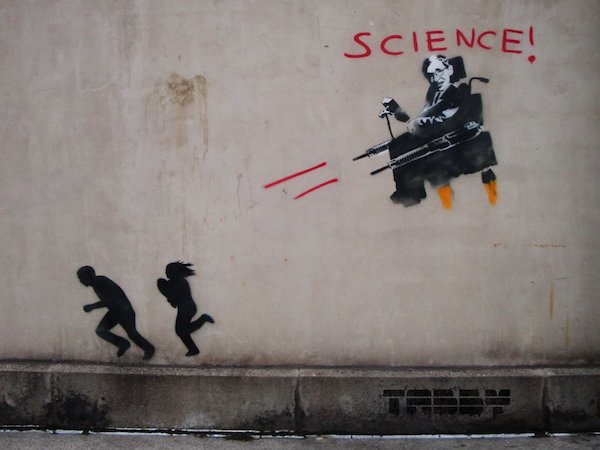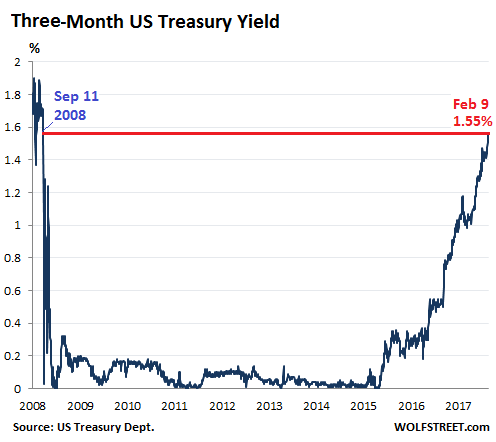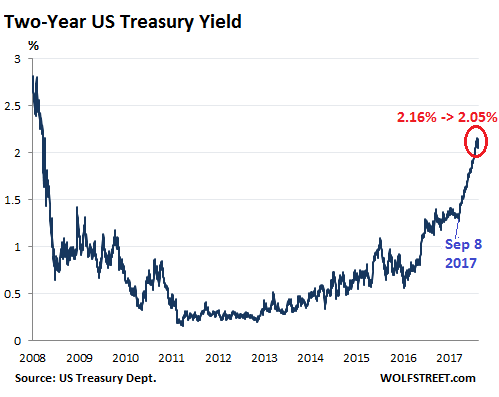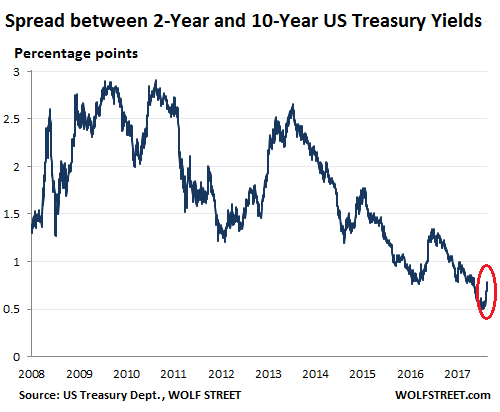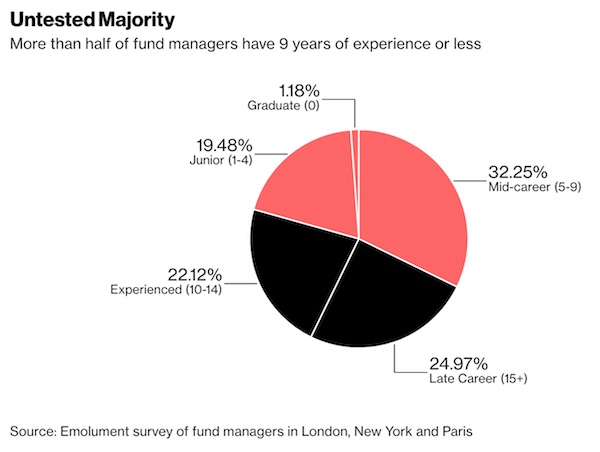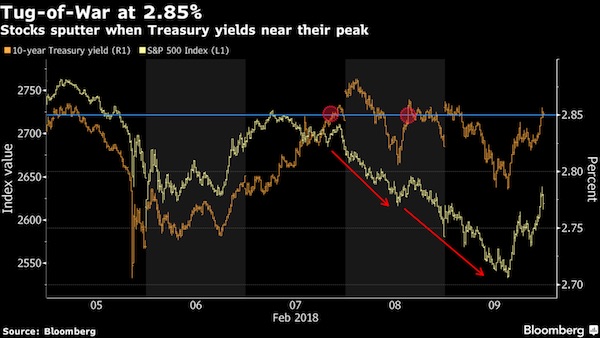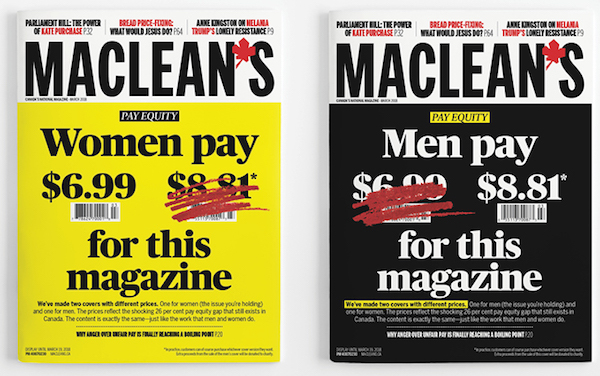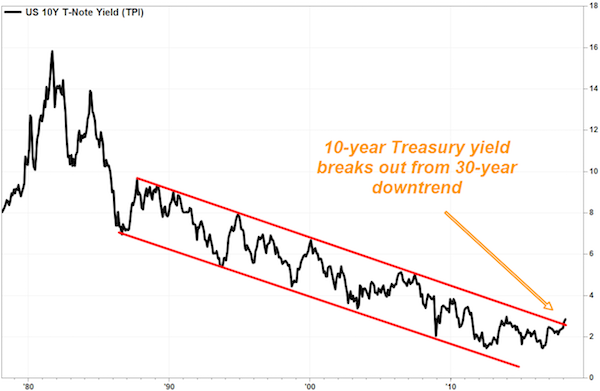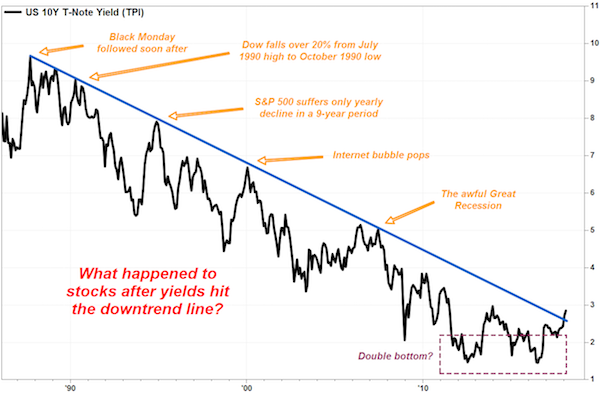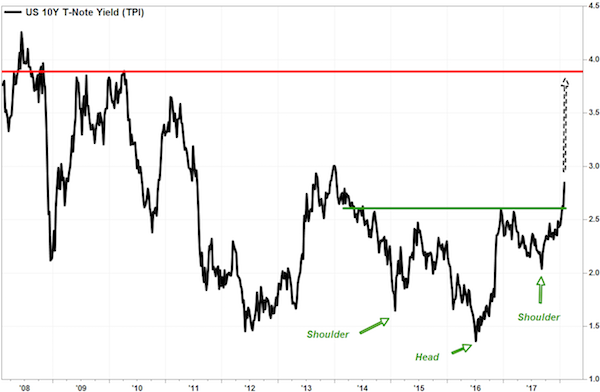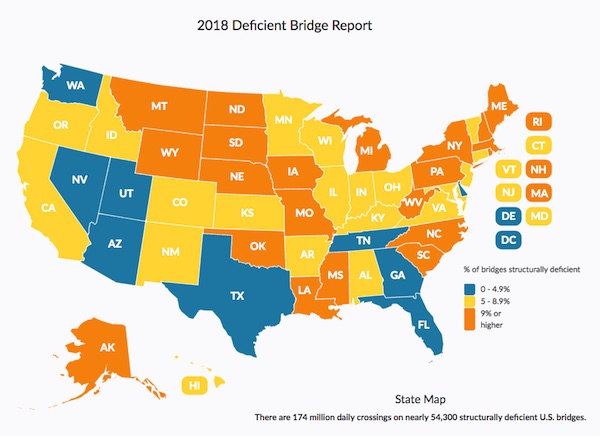
Henri Matisse The pink studio 1911

Went exactly as expected. No big deal. But Trump’s reeled in Kim, who will now have to deliver.
• Trump And Kim Sign “Comprehensive” Letter To End Historic Summit (ZH)
Donald Trump and North Korean Leader Kim Jong Un signed what the US president described as a “very important, comprehensive” document following the conclusion of their “really fantastic” whirlwind historic summit in Singapore, the first between a US president and North Korean leader that came after decades of hostility. “The letter that we are signing is very comprehensive, and I think both sides will be very impressed with the results,” Trump said as he sat alongside the North Korean leader at a large wooden table in front of a bank of U.S. and North Korean flags to endorse the document, which however produced no new specific commitments from Pyongyang to surrender its nuclear weapons aside from broad generalities.
Speaking through an interpreter, Kim said that the two countries would “leave the past behind” in signing the “historic”agreement and that “the world will see the major change,” adding that “I would like to express gratitude to President Trump for making this meeting happen.” Trump said more information would come out “in just a little while” and did not say what the agreement entailed, but some had already managed to extract the key contents from the letter Trump held up. The letter says that the U.S. and North Korea “will join their efforts to build a lasting and stable peace regime on the Korean Peninsula,” and that North Korea “commits to work toward complete denuclearization of the Korean Peninsula.”
The pair also agree to “establish new U.S.-DPRK relations, and the two leaders “have committed to cooperate for the development of new U.S.-DPRK relations and for the promotion of peace, prosperity and security of the Korean Peninsula and of the world.” Notably, the U.S. and N. Korea agree to follow-on negotiations led by Sec. of State Mike Pompeo and a DPRK counterpart. In other words this is just the first of many summits. Speaking to reporters, Trump also said the he would “absolutely” invite Kim to the White House to continue their talks, meanwhile Kim called the document “historic” and said it would lead to a new era in the U.S.-North Korea relationship. “We had a historic meeting and decided to leave the past behind, and we are about to sign a historic document,” he said through a translator. “The world will see a major change.”

Perspective is everything.
• Dennis Rodman Cries As He Hails Trump-Kim Summit: ‘I’m So Happy’ (G.)
Kim Jong-un and Donald Trump had barely exchanged pleasantries outside the Capella hotel when their mutual friend Dennis Rodman appeared on TV to provide a characteristically bizarre sideshow to the main event in Singapore. In a rambling interview with CNN’s Chris Cuomo from Singapore, a highly emotional Rodman claimed credit for predicting that today’s summit – which seemed unlikely just months ago – would happen. Wearing a Make America Great Again baseball cap and a T-shirt bearing the name of his sponsor Potcoin, Rodman sobbed as he described his feelings about the summit and recalled the abuse he had received over his controversial visits to Pyongyang to meet Kim. “I said to everybody, the door will open,” he said.
“It’s amazing, it’s amazing, it’s amazing. When I said those things, when I went back home, I got so many death threats … and I believed in North Korea, and I couldn’t even go home, I couldn’t even go home, I had to hide out for 30 days, I couldn’t even go home. “But I kept my head high, brother, I knew things were going to change … I knew it, I was the only one. I never had no one to hear me, I had no one to see me. But I took all those bullets, I took all at that … but I’m still standing. Today is a great day for everybody, Singapore, Tokyo, China, everybody … it’s a great day. I’m here to see it. I’m so happy.”
The former NBA star is one of the few westerners to have met Kim, with whom he struck up an unlikely friendship over their shared love of basketball. Describing his meetings with Kim, Rodman said: “He’s more like a big kid, even though he’s small. He wants to come to America. He wants to enjoy his life.” Rodman said he had tried to pass on what he heard from Kim to Barack Obama but was “brushed off”.

Reuters has called in a body language expert. Stay tuned for Aunt Mille’s take on their astrological signs. June 14 is Trump’s 72nd birthday.
• Trump, Kim Meet, But Body Language Shows Some Nerves (R.)
In their first moments of meeting each other, U.S. President Donald Trump and North Korean leader Kim Jong Un both sought to project a sense of command but displayed some anxiety at the start of their high-stakes summit in Singapore. Body language experts said that in the 13 seconds or so the U.S. president held on to the hand of Kim for the first time, he projected his usual dominance by reaching out first, and patting the North Korean leader’s shoulder. Not to be outdone, Kim firmly pumped Trump’s hand, looking him straight in the eye for the duration, before breaking off to face the media.
“It wasn’t a straight-out handshake,” said Allan Pease, an Australian body language expert and author of several books on the topic, including “The Definitive Guide to Body Language”. “It was up and down, there was an argy-bargy, each one was pulling the other closer. Each guy wasn’t letting the other get a dominant grip,” he told Reuters by telephone from Melbourne. Trump and Kim are meeting in Singapore for historic talks aimed at finding a way to end a nuclear standoff on the Korean peninsula. Should they succeed, it could bring lasting change to the security landscape of Northeast Asia, like the visit of former U.S. President Richard Nixon to China in 1972 led to the transformation of China.
Ahead of the meeting, Trump had said he would be able to work out within the first minute whether his North Korean counterpart was serious about making peace. Projecting authority comes easily to Trump, who as a global leader, businessman and former television personality is well-versed in using body language effectively. He also has a height advantage over Kim. While both men walked to the library where they held their first face-to-face meeting, Trump sought to ease any tension in the air by chatting to Kim, and letting him walk slightly ahead. Trump, however, maintained control over the chat by patting Kim, and using his hand to guide him, who is almost half his age, into the room. Kim also patted Trump, in an attempt to assert control. He mainly looked down, listening, as Trump spoke, but did look up at several times during the conversation.

She doesn’t really think that, but needs a stab at Trump for upsetting the order that gave her the seat she has.
• IMF’s Lagarde Says Global Economic Outlook Darkening By The Day (R.)
IMF chief Christine Lagarde led an attack by global economic organizations on U.S. President Donald Trump’s “America First” trade policy on Monday, warning that clouds over the global economy “are getting darker by the day”. Trump backed out of a joint communique agreed by Group of Seven leaders in Canada at the weekend that mentioned the need for “free, fair and mutually beneficial trade” and the importance of fighting protectionism. The U.S. president, who has imposed import tariffs on metals, is furious about the United States’ large trade deficit with key allies. “Fair trade is now to be called fool trade if it is not reciprocal,” he tweeted on Monday.
In response, Lagarde unleashed a thinly veiled attack on Trump’s trade policy, saying challenges to the way trade is conducted were damaging business confidence, which had soured even since the weekend G7 summit. The IMF is sticking to its forecast for global growth of 3.9% both this year and next, she said, before adding: “But the clouds on the horizon that we have signaled about six months ago are getting darker by the day, and I was going to say by the weekend.” “The biggest and darkest cloud that we see is the deterioration in confidence that is prompted by (an) attempt to challenge the way in which trade has been conducted, in which relationships have been handled and in which multilateral organizations have been operating,” Lagarde said.
[..] Earlier, Germany’s economy minister said Berlin saw no immediate solution to the trade row between the United States and other major economies but remained open to talks “among friends”, seeking to head off a full-blown global trade war. As Europe’s biggest exporter to the United States, and with more than one million German jobs at stake, Germany is desperate to avoid an EU trade war with the United States. “I believe a win-win situation is still possible,” Economy Minister Peter Altmaier, one of Merkel’s closest lieutenants, told broadcaster Deutschlandfunk. “At the moment, however, it seems that no solution is in sight, at least not in the short term.”

I thought we agreed we didn’t like the world order.
• If Trump Wants To Blow Up The World Order, Who Will Stop Him? (Varoufakis)
The Trump administration is building up a substantial economic momentum domestically. First, he passed income and corporate tax cuts that the establishment Republicans could not have imagined even in their wildest dreams a few years ago. But this was not all. Behind the scenes, Trump astonished Nancy Pelosi, the Democrat’s leader in the House of Representatives, by approving every single social program that she asked of him. As a result, the federal government is running the largest budget deficit in America’s history when the rate of unemployment is less than 4%. Whatever one thinks of this president, he is giving money away not only to the richest, who of course get the most, but also to many poor people.
With demonstrably strong employment, especially among African American workers, inflation under control and the stock market still buoyant, Donald Trump has his home front covered as he travels to foreign lands to confront friends and foes. The US anti-Trump establishment prays that markets will punish his profligacy. This is precisely what would have happened if America were any other country. With a fiscal deficit expected to reach $804bn 2018 and $981bn in 2019, and with the government expected to borrow $2.34tn in the next 18 months, the exchange rate would be crashing and interest rates would be going through the roof. Except that the US is not any other country. As its central bank, the Fed, winds down its quantitative easing program by selling off its stock of accumulated assets to the private sector, investors need dollars to buy them.
This causes the number of dollars available to investors to shrink by up to $50bn a month. Add to this the dollars German and Chinese capitalists need to buy US government bonds (in a bid to park their profits somewhere safe) and you begin to see why Trump believes he will not be punished by a run either on the dollar or on government bonds. Armed with the exorbitant privilege that owning the dollar presses affords him, Trump then takes a look at the trade flows with the rest of the G7 and comes to an inescapable conclusion: he cannot possibly lose a trade war against countries that have such high surpluses with the US (eg Germany, Italy, China), or which (like Canada) will catch pneumonia the moment the American economy catches the common cold.

“..it is hard to imagine two characters less prepared by the rigors of reality than this pair.”
• World Wrassling Diplomacy (Jim Kunstler)
I’m all for world peace, and I would like to attempt to take the Kim-Trump meeting seriously, but it is hard to imagine two characters less prepared by the rigors of reality than this pair. Each has been dwelling in a magic kingdom of his own life-long. Both exhibit behaviors typical of children: sulking, threats, bluster, and mysterious mood shifts. The supposedly serious adults around Mr. Trump must be going through the Xanax like Tic-Tacs. The military attachés around the inscrutable Kim might recall the 2016 execution of two NK ministers shot to death with anti-aircraft guns for displeasing the boss — one of them for merely falling asleep during a Kim speech. Who cleaned up that mess, I wonder.
Maybe something good can come out of this improbable set-up. I expect a kind of vaudeville act: a few moments of the two principals pretending that they understand what each is saying… a hopeful communiqué announcing the blooming of a million flowers, and a fateful blowup a few hours into the honeymoon when Kim, Trump, and all the spear-carriers on both sides realize that they had no idea what they were talking about. Then, on Thursday or thereabouts the long-awaited DOJ Inspector General’s report comes out, after a going-over by the very folks at the FBI whose conduct is the subject of that review. I expect a new layer in the mighty cake baked by the white knights of the Resistance. This one will be called Redacto-Gate.

Things that should be obvious to every 5-year old, but are not:
2. Money rewards sociopathy.
3. Wealth kills empathy.
• Twelve Tips For Making Sense Of The World (CJ)
In an environment that is saturated with mass media propaganda, it can be hard to figure out which way’s up, let alone get an accurate read on what’s going on in the world. Here are a few tips I’ve learned which have given me a lot of clarity in seeing through the haze of spin and confusion. Taken separately they don’t tell you a lot, but taken together they paint a very useful picture of the world and why it is the way it is.
1. It’s always ultimately about acquiring power.
In the quest to understand why governments move in such irrational ways, why expensive, senseless wars are fought while homeless people die of exposure on the streets, why millionaires and billionaires get richer and richer while everyone else struggles to pay rent, why we destroy the ecosystem we depend on for our survival, why one elected official tends to advance more or less the same harmful policies and agendas as his or her predecessor, people often come up with explanations which don’t really hold water.The most common of these is probably the notion that all of these problems are due to the malignant influence of one of two mainstream political parties, and if the other party could just get in control of the situation all the problems would go away. Other explanations include the belief that humans are just intrinsically awful, blaming minorities like Jews or immigrants, blaming racism and white supremacy, or going all the way down wild and twisted rabbit holes into theories about reptilian secret societies and baby-eating pedophile cabals. But really all of mankind’s irrational behavior can be explained by the basic human impulse to amass power and influence over one’s fellow humans, combined with the fact that sociopaths tend to rise to positions of power.
Our evolutionary ancestors were pack animals, and the ability to rise in social standing in one’s pack determined crucial matters like whether one got first or last dibs on food or got to reproduce. This impulse to rise in our pack is hardwired deeply into our evolutionary heritage, but when left unchecked due to a lack of empathy, and when expanded into the globe-spanning 7.6 billion human pack we now find ourselves in due to ease of transportation and communication, it can lead to individuals who will keep amassing more and more power until they wield immense influence over entire clusters of nations.
2. Money rewards sociopathy.
The willingness to do anything to get ahead, to claw your way to the top, to betray whomever you need to, to throw anyone under the bus, to step on anyone to pass them in the rat race, will be rewarded in our current system. Being willing to underpay employees, cheat the legal system, and influence legislators will be rewarded exponentially more. People with a sense of empathy are often unwilling to do such things, whereas sociopaths and psychopaths are. About four percent of the population are sociopaths, and about one percent are psychopaths, with some five to fifteen percent falling somewhere along the borderline. The less empathy you have, the further you are willing to go, and the further up the ladder you can climb.

Don’t hold your breath.
• ECB Set To Begin The Process Of Its Easy Money-Exit (CNBC)
“We never pre-commit.” This was the rule broken last week by the European Central Bank’s Chief Economist Peter Praet, one of the more dovish members of the bank’s Governing Council, as he openly said it would start to discuss the gradual exit from of its quantitative easing (QE) program this week at its meeting in Riga, Latvia. What has changed? Recent headline inflation was stronger than expected and close to the ECB’s target, mainly due to the rise in oil prices. At the same time the situation in Italy has calmed down again. But there still are risks to the growth outlook from other issues such as the U.S.-EU trade spat.
“We think a ‘flexible tapering’ announcement is more likely than an unconditional commitment to an end date for QE,” said ECB watcher Frederik Ducrozet at Pictet Wealth Management in a note. “The ECB could say that there will be ‘no further large expansion of asset purchases’ barring an unwarranted tightening of financial conditions. The modalities of QE tapering could be decided in July.” Whether the details come in June or July, the overwhelming majority of economists polled by Reuters expect the purchases to end by the end of this year. “Irrespective of whether the exit announcement is in June or July, we expect QE to end in December after a taper in (the fourth quarter) and the first policy rate hike in June 2019,” said Mark Wall, the chief economist with Deutsche Bank, in a research note.

And it’s legal!
• Corporate Executives Cash In On Stock Buybacks (CNBC)
Corporate executives are using tax cuts and share buybacks to boost their own compensation, a top regulator said Monday. Companies have announced a record-breaking level of share buybacks since Congress passed the Republican-backed tax reduction in December. Critics of the $1.5 trillion measure had worried that it would lead to big rewards for shareholders and only limited benefit to the broader economy. Robert Jackson Jr., a member of the Securities and Exchange Commission, said corporate bigwigs have been selling their shares after the buyback announcements hit, cashing in from the stock price surge that often happens after a repurchase notice.
The rules exempting companies from securities law violations for the timing and pricing of buyback announcements need to change, said Jackson, who President Donald Trump appointed earlier this year to fill a designated Democratic SEC seat. Jackson pointed out that the Dodd-Frank banking reforms passed after the financial crisis included language aimed at keeping investors informed about how executives cash out their shares, but specific rules remain in limbo. “But it’s not just that the regulations haven’t been finalized. It’s that the problem itself keeps getting worse,” he said. “You see, the Trump tax bill has unleashed an unprecedented wave of buybacks, and I worry that lax SEC rules and corporate oversight are giving executives yet another chance to cash out at investor expense.”
Indeed, buybacks totaled $178 billion during the first quarter, hit a record $171.3 billion in May alone and have seen $51.1 billion announced so far in June, according to market data firm TrimTabs. At the same time, insider selling has totaled $23.6 billion. Wall Street analysts expect full-year buybacks to total as much as $800 billion, part of what UBS recently forecast to be a $2.5 trillion tsunami of cash pumped into repurchases, dividends, and mergers and acquisitions activity.

Sometimes you wonder how much longer for the internet as we know it.
• US Net Neutrality Rules Expire, Court Battle Looms (R.)
The U.S. open internet rules expired on Monday, handing sweeping new powers to internet providers to block, throttle or offer paid “fast lanes” for web traffic, but a court battle remains ahead. The Federal Communications Commission repealed the 2015 Obama administration’s landmark net neutrality rules in December by a 3-2 vote, sparking a firestorm of criticism on social media websites, opposition from internet firms like Facebook and Alphabet, and protests among Democrats in the Republican-controlled Congress. New regulations that took legal effect Monday give internet service providers (ISPs) sweeping power to slow, block or offer “paid prioritization” to some websites as long as they disclose the practices.
The 2015 order subjected internet providers to strict regulations by the FCC, arguing consumers needed protection from internet provider practices and said internet providers could engage in “just and reasonable conduct.” FCC Chairman Ajit Pai said last week the rollback will ensure more investment by providers and will ensure “better, faster, and cheaper Internet access and more broadband competition to the American people.” FCC Commissioner Jessica Rosenworcel, a Democrat who voted against the repeal, said Monday that the decision put the FCC “on the wrong side of history, the wrong side of the law, and the wrong side of the American public.”

Rescue the poor souls already.
• Stranded Migrant Rescue Boat Unable To Make Voyage To Spain (Ind.)
A rescue boat loaded with hundreds of refugees which has been stranded in the Mediterranean Sea after Italy and Malta refused to allow the boat to dock, is unable to make the journey to Spain where the government has said it can land. Bad weather in the area is forecast to get worse, making the three-to-five-day voyage dangerous, according to French humanitarian group SOS Meiterranee France. According to the organisation, 629 migrants have been taken on board the Aquarius rescue boat, including 123 unaccompanied minors and seven pregnant women. On Monday evening the group put out a message which read: “Reaching Spain would take several days. With 629 people on board and weather deteriorating, the situation could become critical.”
“Priority must remain the safety of all survivors. It is the responsibility of the Italian maritime authorities to find a safe and fast solution for the 629 people aboard the #Aquarius.” The boat was refused entry to Italian ports after Italy’s interior minister Matteo Salvini, who is also leader of far-right party Lega Nord (Northern League) said that all Italian ports were closed to the Aquarius. In a Facebook post he called on Malta to take in the vessel. [..][ the new Spanish prime minister, Pedro Sanchez, who took office just over a week ago, then said Spain would allow the rescue vessel to dock in the city of Valencia, where the rescued migrants and refugees could finally disembark. Despite the offer, it now looks unlikely the boat will attempt to reach Spain.

What was it, one in every 3 mammals is a bat?!
• The Last Bat: The Mystery Of Britain’s Most Solitary Animal (G.)
We cannot speak of its loneliness, but it must be Britain’s most solitary animal. For the last 16 years, every winter, a male greater mouse-eared bat has taken up residence 300 metres inside a disused and exceedingly damp railway tunnel in West Sussex. The greater mouse-eared bat has been all but extinct in this country for decades. This is the only remaining one we know of. The future of the species in Britain appears to rest with one long-lived and very distinctive individual. The greater mouse-eared bat is so large that observers who first discovered it in Britain likened one to a young rabbit hanging from a wall. In flight, its wings can stretch to nearly half a metre – an astonishing spectacle in a land where bats are generally closer to the size of the rodent that inspired their old name: flittermouse.
The bat has large, mouse-like ears and its feeding habits are as striking as its size. Rather than zig-zagging through darkening skies collecting flying insects, like most bats, Myotis myotis descends earthwards, flapping its wings very slowly as it covers the ground, picking up grasshoppers, crickets, dung beetles and other flightless insects as it goes. Often, it will flop on to the ground, wings outstretched to fold over its prey. The solitary individual who spends the winters in West Sussex has never been observed in flight. Where it goes each spring is not known, and what it does is not known, nor which other animals, if any, it encounters. All that is known is that each winter the bat faithfully returns to its dark tunnel, where it hangs, almost motionless, for five months.
[..] Bats have been evolving for so long, and with so many specialised attributes, from echolocation to drastically extended forelimbs, that the order of Chiroptera – “winged hands” in Latin – accounts for one in five species of mammal. They are supremely successful animals. As one expert puts it: when you have been evolving for so long, you’ve perfected the business of being a bat. That business is becoming tricker in a human-dominated world. In older times, they were feared and despised. Modern people may be more tolerant, but even beneficent parts of society – from harvesters of renewable energy to vicars – are often hostile to bats. Energy-efficient homes seal up roof spaces where bats once roosted.
New roads – and the planned route of the HS2 railway – block traditional foraging routes. LED lighting is particularly disturbing for bats. Wind farms chop them up: according to a study published in 2016, researchers using sniffer dogs to find and retrieve bat carcasses calculated that 29 onshore windfarms killed 194 dead bats per month – a kill-rate that would dispatch 80,000 bats a year across Britain, without accounting for migrating bats taken out by the rapidly expanding rows of offshore turbines.




